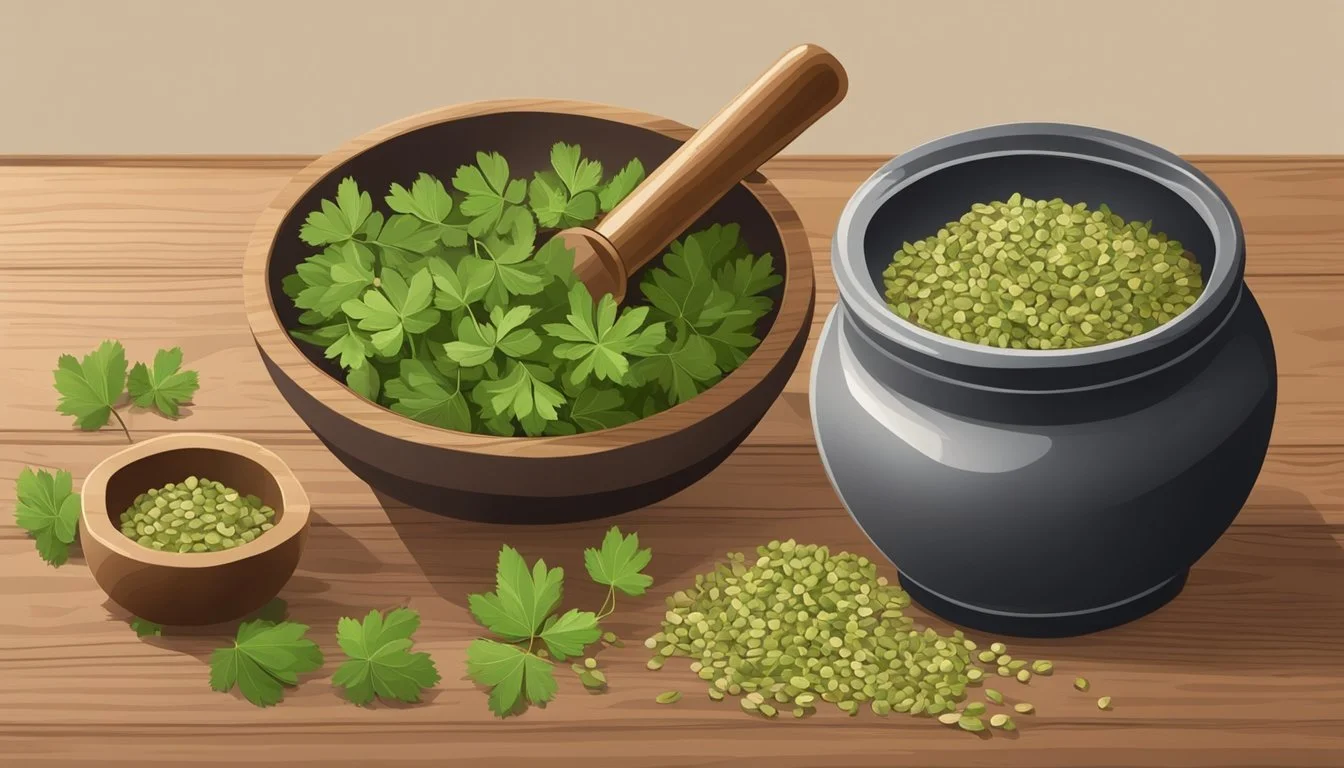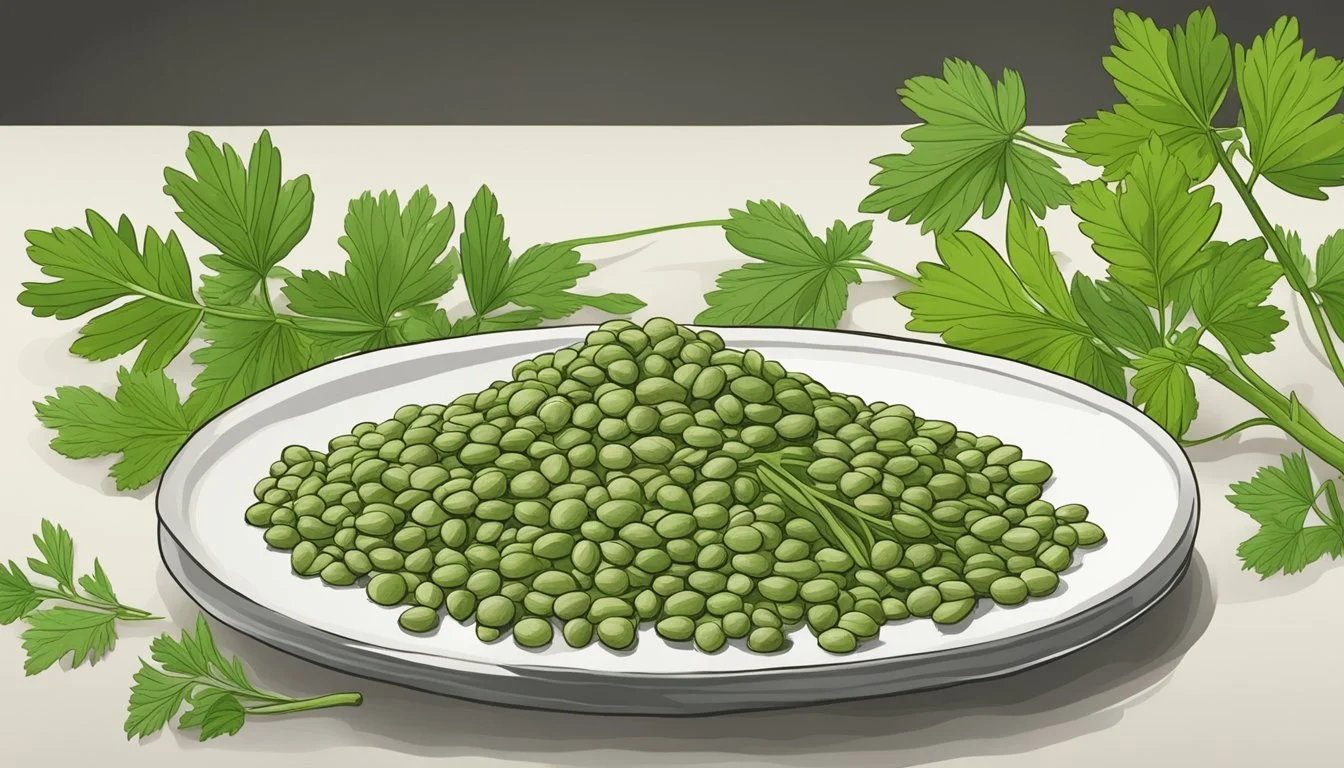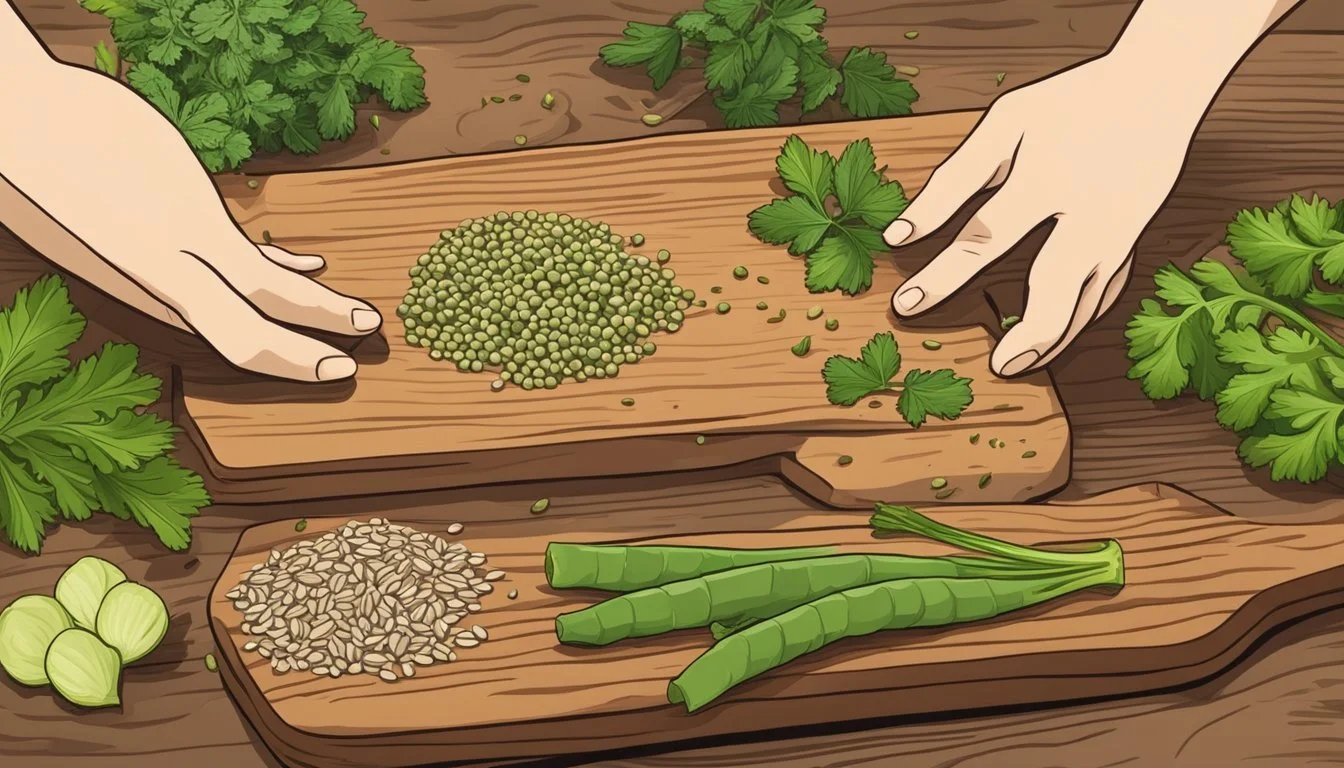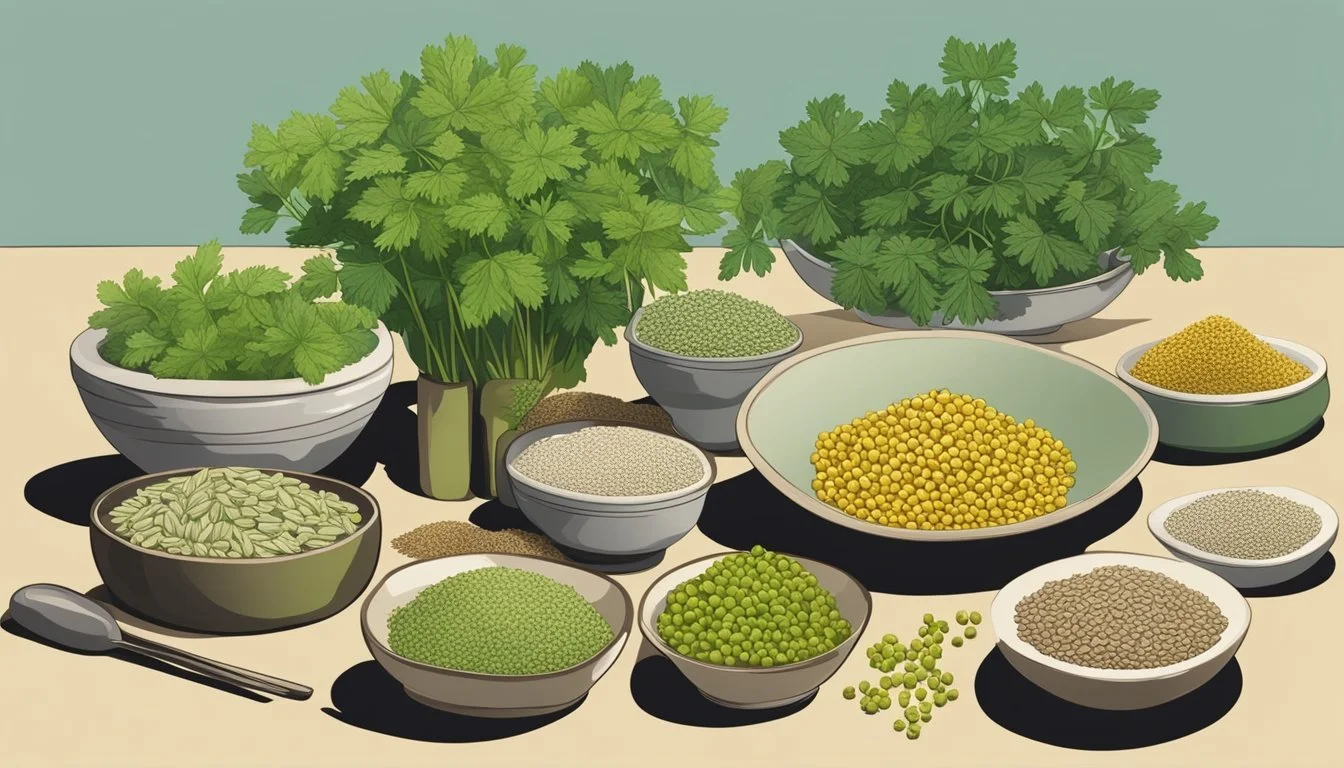Lovage Seeds Substitutes
Top Alternatives for Flavor and Health
For those who find their pantry lacking lovage seeds, there are several worthy alternatives to consider. Lovage seeds, known for their earthy, celery-like flavor with hints of aniseed, can be hard to come by, but a few substitutes can replicate their unique taste. A direct substitute for lovage seeds is celery seeds, which share a similar robust and slightly spicy profile.
Another substitute is fennel seeds. They carry a mild sweetness and an aromatic quality that can complement many recipes calling for lovage seeds. Celery salt, often made from lovage seeds, can also be used to replicate the flavor with an added salty dimension. Each of these alternatives offers a way to maintain the depth and complexity that lovage seeds typically provide to dishes.
For a more complex substitute, consider using a combination of celery seeds and dried dill. This mixture can mimic the herbal notes of lovage seeds while adding a sophisticated twist to the original flavor. These substitutes ensure that no dish has to go without the distinctive taste that lovage seeds impart.
Understanding Lovage
Lovage (Levisticum officinale) is a versatile herb belonging to the parsley family. Known for its distinct aroma and flavor, lovage is used in a variety of culinary applications, from soups and stews to salads and vegetable dishes.
Origin and Botanical Aspects
Lovage, scientifically named Levisticum officinale, is native to the Mediterranean region. It belongs to the Apiaceae family, which includes parsley, carrots, and celery. The plant can grow up to 2 meters tall with hollow stems and dark green leaves.
The leaves resemble those of celery or flat-leaf parsley, and they grow in clusters. Lovage flowers are small, yellow, or greenish-yellow and bloom during the summer months. Both the leaves and seeds are harvested for culinary and medicinal use.
Culinary Uses of Lovage
Lovage is a staple in various culinary traditions due to its intense flavor. It is especially popular in European cuisines. The leaves, seeds, and even roots of the plant are utilized in cooking.
Common uses include:
Soups and stews: Adds a depth of flavor similar to celery.
Salads: Provides an aromatic touch and fresh taste.
Vegetable dishes: Enhances the natural flavor of vegetables.
Stocks and broths: Contributes a rich, aromatic base.
In addition, lovage seeds are often used in place of celery seeds to impart a similar, yet more robust, flavor profile.
Aroma and Flavor Profile
The aroma of lovage is powerful and reminiscent of celery but with a more complex, herbaceous note. It carries a slightly sweet undertone that develops further in cooked dishes.
The flavor profile of lovage is often described as intensely celery-like, with hints of parsley and anise. This makes it highly versatile in savory dishes where a strong, green aromatic note is desired.
Its robust flavor allows it to stand up well in soups, broths, and hearty stews, making it a valuable addition to the pantry for anyone looking to enhance their cooking with a distinctive herbal kick.
Common Lovage Substitutes
Lovage, with its distinctive celery-like flavor, is a favorite in many culinary applications. Sometimes, specific substitutes are needed for fresh lovage leaves, seeds, or even root vegetables.
Substitutes for Fresh Lovage Leaves
Flat-leaf parsley is a common substitute for fresh lovage leaves. With its fresh, grassy flavor, it works well in soups and salads. While not as strong as lovage, it provides a similar vibrant taste.
Celery leaves can be used when lovage leaves are unavailable. Their crisp texture and mild flavor add a celery-like essence to various dishes. Celery leaves are particularly useful in broths, stews, and sauces.
Fennel fronds also offer a comparable herby and anise-like taste. The fronds are suitable for fish, poultry, and vegetable dishes, bringing a fresh aromatic note that resembles lovage’s unique flavor profile.
Alternatives to Lovage Seeds
Celery seeds are a direct substitute for lovage seeds. They share a similar taste and are perfect for pickling and spice mixes. Celery seeds provide the same earthy and slightly bitter flavor that lovage seeds are known for.
Anise seeds offer a different but compatible flavor for those looking to replicate lovage seeds. With a sweet and aromatic taste, they can be used in baking and as a spice in savory dishes when lovage seeds are unavailable.
Fennel seeds are another alternative, known for their sweet and licorice-like flavor. These seeds work well in sausages, stews, and baked goods, offering a comparable depth to what lovage seeds typically bring to recipes.
Root Vegetable Substitutes
Celeriac, or celery root, is a robust substitute for lovage's root vegetable form. It has a nutty flavor with a hint of sweetness, which becomes more pronounced when cooked. Celeriac works wonderfully in soups, stews, and purees.
Parsnips provide a sweet and earthy flavor, making them versatile substitutes in many cooked dishes. These root vegetables blend seamlessly into soups, roasted vegetable medleys, and mashed recipes, where they can mimic the texture and subtle sweetness of lovage.
Potatoes are a basic substitute, especially in dishes where texture is more critical than taste. While they lack the nuanced flavor of lovage or celeriac, they are a practical option for thickening soups and using in potato dishes, providing bulk and a mild taste.
How to Choose and Use Substitutes
Choosing the right substitute for lovage seeds and using them effectively in recipes can enhance flavor and maintain the integrity of your dish. Here are key guidelines to help in selecting and incorporating substitutes for various culinary needs.
Determining the Best Substitute
When selecting a substitute for lovage seeds, it's essential to consider the flavor profile of the original ingredient. Lovage seeds have a strong, celery-like flavor with undertones of anise. The best substitutes mimic these characteristics closely. Suitable options include celery seeds, fennel seeds, and flat-leaf parsley.
Celery seeds offer a similar taste and aroma, making them a perfect alternative. Fennel seeds provide an aniseed flavor that complements many recipes. Flat-leaf parsley can be used for its herbaceous and slightly grassy taste, though it lacks the seed's potency.
Incorporating Substitutes in Recipes
Incorporating these substitutes requires an understanding of their roles in cooking. When using celery seeds, a 1:1 substitution works well due to their similar flavor intensity. Fennel seeds should be used sparingly—their stronger aniseed flavor can overpower the dish.
For soups and stews, add substitutes early in cooking to allow the flavors to meld. In salads, sprinkle finely chopped flat-leaf parsley as a garnish. When making sauces and dressings, integrate substitutes gradually, adjusting to taste.
Using these substitutes thoughtfully ensures your dish retains its desired taste and aroma, making for a successful culinary experience.
Additional Aspects to Consider
Several key points need to be considered when substituting lovage seeds. These aspects include adjusting for the intensity and volume of substitutes, the health and nutritional benefits they offer, and their availability and storage considerations.
Adjusting for Intensity and Volume
When substituting lovage seeds, it's essential to account for the intensity and volume of the alternatives. For example, celery seeds and fennel seeds can be stronger or milder in flavor than lovage seeds. Celery seeds typically have a strong, concentrated taste. Therefore, using half the amount compared to lovage seeds might be sufficient.
On the other hand, fennel seeds carry a milder, slightly sweet taste. In such instances, you might need to use slightly more fennel seeds to achieve a similar flavor profile. Adjusting the quantities ensures the dish maintains its intended taste and aroma without overpowering other ingredients.
Health and Nutritional Benefits
Lovage seeds and their substitutes offer various health benefits and nutritional profiles. Celery seeds, for instance, are rich in vitamin C, vitamin A, and essential minerals. They are known for their potential anti-inflammatory and medicinal uses.
Fennel seeds also boast several nutritional advantages. They are a good source of vitamin C, fiber, and antioxidants. These seeds are often credited with aiding digestion and potentially reducing bloating. Understanding the nutritional content and health advantages of each substitute helps incorporate them thoughtfully into recipes for added benefits.
Availability and Storage
Another important aspect is the availability and storage of substitutes. Celery seeds are commonly found in most grocery stores, often in the spice or herb aisle. Fennel seeds are also widely available and usually sold in both whole and ground forms. The shelf life of these seeds can be long if stored properly in cool, dry places.
To maintain freshness and potency, transferring seeds to airtight containers once they are opened is recommended. Additionally, storing them away from direct sunlight and humidity can help preserve their flavor and aroma for an extended period. Being mindful of storage practices ensures that these substitutes remain effective and flavorful when used in cooking.
Lovage in Specialized Dishes
Lovage, with its robust and aromatic profile, finds versatile use in various specialized dishes, enhancing the flavor of seafood, roasts, casseroles, and more. Substitutes can mimic its unique taste, making recipes adaptable and flavorful.
Seafood and Fish Enhancements
In seafood and fish dishes, lovage seeds provide a distinct, aromatic flavor that complements the natural taste of fish. When unavailable, fennel seeds serve as an excellent substitute due to their similar anise-like aroma.
These seeds can be infused in fish stocks or sprinkled over grilled fish for a subtle yet compelling enhancement. Lovage seeds also pair well with herbs like dill and parsley, boosting the savory profile of fish soups and broths.
Flavoring for Roasts and Casseroles
Lovage seeds bring a unique, earthy flavor to roasts and casseroles. These seeds can be rubbed into meat or mixed into casseroles to impart a depth of taste that standard seasonings might lack.
When lovage seeds are not available, celery seeds make a great alternative, providing a slightly sweeter but equally flavorful touch. Using lovage enhances roast vegetables, enriching the dish with a herbal note that ties the flavors together.
Unique Applications
Beyond traditional uses, lovage seeds feature in numerous innovative culinary applications. They can be crushed into salad dressings or ground into egg dishes for an unexpected burst of flavor.
In herbal teas, lovage seeds offer a mild, soothing taste with potential medicinal benefits, while their potent flavor makes them suitable for pickling spices, adding complexity to homemade pickles. Chefs also experiment with lovage in bread and crackers, giving baked goods a distinctive, savory edge.
Creative Uses and Pairings
Exploring creative ways to use and pair lovage seed substitutes can transform a dish dramatically. Attention to combining herbs and spices, along with color and texture considerations, can elevate your cooking.
Combining Herbs and Spices
Combining herbs and spices enhances flavors and brings balance to your dish. Fennel, with its aniseed flavor, pairs beautifully with cilantro and basil to add freshness. Meanwhile, celery leaves work well with rosemary and sage for a robust, aromatic profile that mirrors the complexity of lovage.
Flat-leaf parsley contributes a grassy note that complements tarragon and oregano in stews and roasts. Blending these herbs together not only imparts depth but also introduces a harmonious blend that intensifies the taste.
Color and Texture Considerations
Color and texture play a crucial role in the visual and sensory appeal of your dish. Celery leaves retain a vibrant green hue, making them suitable for garnishing salads and soups. They also have a crisp texture that adds a refreshing crunch.
Celeriac provides a knobbly appearance and a firm texture, ideal for roasting or mashing. It gradually develops a sweet undertone, lending a mellow depth to the dish. Flat-leaf parsley offers both a lush green color and a soft, tender texture, perfect for fresh, bright garnishes.
These considerations ensure that your substitutes not only mimic the flavor but also enhance the appearance and mouthfeel of your culinary creations.
Conclusion
When substituting lovage seeds, numerous alternatives can efficiently mimic its distinct taste. Celery seeds, flat-leaf parsley, and fennel are some notable options.
Each substitute has unique characteristics that make it suitable for different recipes. For instance, celery seeds provide a similar strong flavor, while fennel adds a herby, crisp texture.
Cooking enthusiasts can confidently use these substitutes to enhance their dishes, whether in soups, stews, or salads. Lovage substitutes maintain the essence of the original ingredient, ensuring the dish's culinary integrity remains intact.
Switching between these alternatives enables experimentation, allowing for both innovation and adherence to traditional flavors in diverse recipes. Hence, knowing these options expands culinary versatility in the kitchen.








